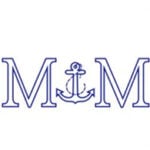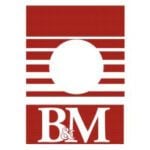-
What system of port state control applies in your jurisdiction? What are their powers?
-
Are there any applicable international conventions covering wreck removal or pollution? If not what laws apply?
-
What is the limit on sulphur content of fuel oil used in your territorial waters? Is there a MARPOL Emission Control Area in force?
-
Are there any applicable international conventions covering collision and salvage? If not what laws apply?
-
Is your country party to the 1976 Convention on Limitation of Liability for Maritime Claims? If not, is there equivalent domestic legislation that applies? Who can rely on such limitation of liability provisions?
-
If cargo arrives delayed, lost or damaged, what can the receiver do to secure their claim? Is your country party to the 1952 Arrest Convention? If your country has ratified the 1999 Convention, will that be applied, or does that depend upon the 1999 Convention coming into force? If your country does not apply any Convention, (and/or if your country allows ships to be detained other than by formal arrest) what rules apply to permit the detention of a ship, and what limits are there on the right to arrest or detain (for example, must there be a “maritime claim”, and, if so, how is that defined)? Is it possible to arrest in order to obtain security for a claim to be pursued in another jurisdiction or in arbitration?
-
For an arrest, are there any special or notable procedural requirements, such as the provision of a PDF or original power of attorney to authorise you to act?
-
What maritime liens / maritime privileges are recognised in your jurisdiction? Is recognition a matter for the law of the forum, the law of the place where the obligation was incurred, the law of the flag of the vessel, or another system of law?
-
Is it a requirement that the owner or demise charterer of the vessel be liable in personam? Or can a vessel be arrested in respect of debts incurred by, say, a charterer who has bought but not paid for bunkers or other necessaries?
-
Are sister ship or associated ship arrests possible?
-
Does the arresting party need to put up counter-security as the price of an arrest? In what circumstances will the arrestor be liable for damages if the arrest is set aside?
-
How can an owner secure the release of the vessel? For example, is a Club LOU acceptable security for the claim?
-
Describe the procedure for the judicial sale of arrested ships. What is the priority ranking of claims?
-
Who is liable under a bill of lading? How is “the carrier” identified? Or is that not a relevant question?
-
Is the proper law of the bill of lading relevant? If so, how is it determined?
-
Are jurisdiction clauses recognised and enforced?
-
What is the attitude of your courts to the incorporation of a charterparty, specifically: is an arbitration clause in the charter given effect in the bill of lading context?
-
Is your country party to any of the international conventions concerning bills of lading (the Hague Rules, Hamburg Rules etc)? If so, which one, and how has it been adopted – by ratification, accession, or in some other manner? If not, how are such issues covered in your legal system?
-
Is your country party to the 1958 New York Convention on the Recognition and Enforcement of Foreign Arbitral Awards? If not, what rules apply? What are the available grounds to resist enforcement?
-
Please summarise the relevant time limits for commencing suit in your jurisdiction (e.g. claims in contract or in tort, personal injury and other passenger claims, cargo claims, salvage and collision claims, product liability claims).
-
Does your system of law recognize force majeure, or grant relief from undue hardship?
Chile: Shipping
This country-specific Q&A provides an overview of Shipping laws and regulations applicable in Chile.

















